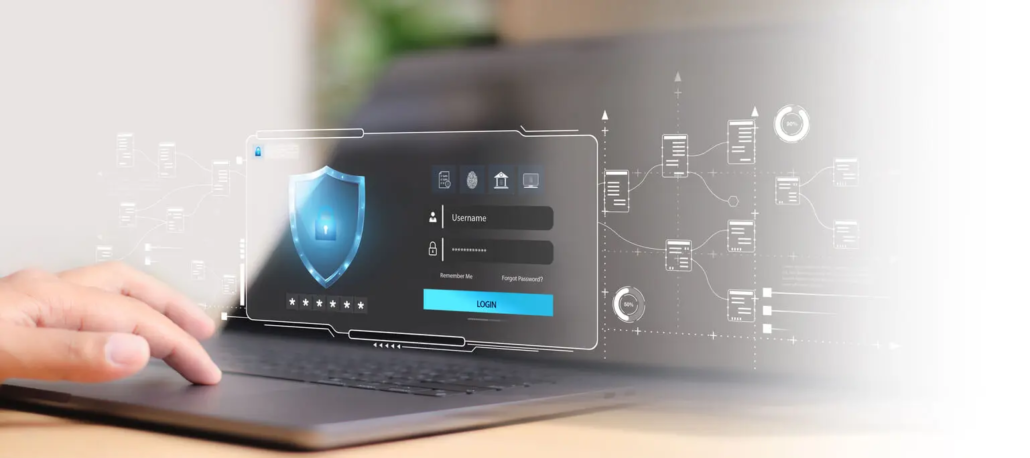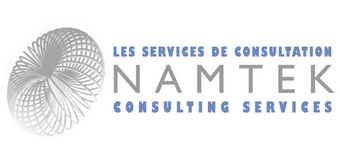Why Cybersecurity Has Become a Business Priority
Cybersecurity has evolved from being a technical issue to a business-critical priority. Every organization — whether it’s a small logistics company, a healthcare provider, or a retail chain — faces increasing pressure to protect sensitive data, maintain uptime, and comply with strict privacy regulations.
The problem is that cyber threats never stop. Hackers, ransomware groups, and even insider risks now operate around the clock. For many businesses, trying to keep up internally is simply not sustainable. Building an in-house cybersecurity team with 24/7 coverage, threat intelligence tools, and a Security Operations Center (SOC) can cost millions annually.
Faced with this reality, many companies are choosing a different path: partnering with a Managed Security Services Provider (MSSP). This allows them to access a dedicated security team and enterprise-grade tools, effectively gaining a 24/7 Security Operations Center without the massive investment in hiring and infrastructure.

Key Takeaways
- A Managed Security Service Provider (MSSP) delivers outsourced cybersecurity operations such as 24/7 monitoring, incident response, device management, and advisory.
- MSSPs protect organizations of all sizes against ransomware, phishing, insider threats, and other evolving risks.
- Partnering with an MSSP is a cost‑effective alternative to building an in‑house Security Operations Center (SOC).
- Small and mid‑sized businesses gain enterprise‑grade protection through affordable subscription models.
- MSSPs help organizations meet compliance requirements (PIPEDA, HIPAA, PCI DSS, ISO 27001) and build customer trust.
What Are Managed Security Services (MSS)?
Managed Security Services (MSS) refer to outsourced cybersecurity operations managed by expert providers. These services protect an organization’s data, network, and endpoints through continuous monitoring, threat detection, and response. Businesses partner with Managed Security Service Providers (MSSPs) to strengthen security without building an in-house team.
Managed Security Services (MSS) are provided by specialized experts, often called Managed Security Service Providers (MSSPs). Instead of relying solely on internal IT teams, businesses can leverage external specialists who focus entirely on protecting networks, endpoints, and data 24/7.
Typical MSS offerings include:
- Continuous monitoring and threat detection
- Security device management and updates
- Incident response and recovery
- Compliance and risk management guidance
Think of MSS as a managed service layer sitting on top of your environment — it watches, maintains, and responds so your team can focus on product, operations, and customers.
Core Components of Managed Security Services
Modern Managed Security Services typically include four key components that work together to detect, prevent, and respond to cyber threats:
- Cyber Security Operations Center (CSOC)
- Managed Security Device Services
- Cybersecurity Advisory Services
- Incident Response Services
What Is a CSOC (Cyber Security Operations Center) and How It Works
Cyber threats can come from anywhere, at any time — from insider misuse to external hackers. Detecting these threats quickly is critical.
A Cyber Security Operations Center (CSOC) continuously collects and analyzes logs, alerts, and behavioral data from across your entire IT environment.
Using Security Information and Event Management (SIEM) tools and advanced threat intelligence, analysts identify and respond to suspicious events in real time.
Key capabilities include:
- Live threat monitoring, analysis, and correlation of millions of event logs.
- Security Information and Event Management (SIEM) administration: onboarding devices, defining custom use cases, parsing rules, and backup/maintenance.
- Threat intelligence services provided by dedicated analysts who identify suspicious activity before it becomes a serious issue.
- Real-time alerts delivered via email or phone when a potential breach is detected.
- Endpoint Detection and Response (EDR) services to secure endpoints from advanced attacks.
- Detailed reporting — daily, monthly, or quarterly — to ensure accountability and compliance.
In practical terms, a CSOC functions as the “command center” of your cybersecurity operations – detecting, analyzing, and responding to threats before they cause damage.

What Are Managed Security Device Services?
Organizations often rely on multiple devices and security technologies – firewalls, intrusion prevention systems, web application firewalls, VPNs, and endpoint protection platforms. Managing these devices is complex and time-consuming.
Managed Security Device Services ensure that these critical technologies are configured, monitored, updated, and patched continuously. Capabilities typically include:
- 24/7 monitoring of devices to detect suspicious activity.
- Patch management and upgrades to keep systems secure.
- Policy management, backups, and health checks for critical devices.
- Administration and troubleshooting by skilled security engineers.
The advantage is peace of mind. Businesses can operate knowing their most critical security tools – firewalls, VPNs, and intrusion systems – are not only active but also managed by professionals who understand evolving threats and best practices.
What Is Incident Response in Managed Security?
Even with strong preventive measures, no system is completely immune to cyber incidents. What truly defines resilience is how quickly and effectively an organization responds when something goes wrong.
Incident Response Services provide a structured and coordinated approach to managing breaches or security events. The process typically involves:
- Identifying and isolating affected systems
- Containing the incident to prevent escalation
- Investigating the root cause and impact
- Recovering systems and restoring operations
- Producing a post-incident report with lessons learned
A skilled incident response team minimizes downtime, reduces data loss, and helps prevent repeat incidents — turning potential disasters into manageable events.
What Are Cybersecurity Advisory Services?
Cybersecurity isn’t just about technology; it’s also about strategy. Without a clear understanding of risks and compliance requirements, even the best tools can fall short.
Cybersecurity Advisory Services help businesses evaluate their security posture, identify vulnerabilities, and create a roadmap for improvement.
Typical advisory activities include:
- Security assessments with actionable recommendations
- Vulnerability scanning and penetration testing
- Employee awareness and phishing simulation training
- Compliance audits (ISO 27001, HIPAA, PIPEDA, PCI DSS)
- Strategic planning and policy development
This guidance ensures organizations don’t just react to threats — they evolve their defenses and maintain long-term resilience.
Why Do Businesses Need Managed Security Services?
Businesses adopt Managed Security Services to overcome modern cybersecurity challenges, from skill shortages to compliance and 24/7 monitoring needs.
There are several reasons why organizations of all sizes – from SMBs to large enterprises — are turning to Managed Security Services:
1. Growing and Evolving Threats
Cyberattacks are becoming more frequent, more complex, and more damaging. Ransomware, phishing, and data breaches no longer target only large corporations — small and mid-sized businesses are equally at risk.
2. Lack of In-House Expertise
Building a full-scale cybersecurity team is expensive and time-consuming. MSS providers fill this gap by giving businesses access to skilled professionals and cutting-edge tools without the overhead.
3. Compliance Requirements
Regulatory frameworks like PIPEDA (in Canada), HIPAA, and PCI DSS (in the U.S.) require companies to maintain strict data protection measures. MSS providers help ensure compliance by managing logs, monitoring access, and documenting incidents.
4. Remote and Hybrid Work Challenges
As more employees work remotely, new security risks emerge. MSS solutions help secure cloud environments, VPN connections, and remote endpoints, ensuring consistent protection wherever teams operate.
What Are the Key Benefits of Managed Security Services?
Implementing MSS can deliver measurable advantages across several dimensions:
- 24/7 Coverage: Continuous monitoring ensures no threat goes unnoticed.
- Cost Efficiency: Subscription models eliminate large capital expenditures.
- Scalability: Services can expand as your business grows.
- Expert Access: Immediate availability of certified cybersecurity professionals.
- Compliance Support: Simplified alignment with PIPEDA, HIPAA, PCI DSS, and ISO standards.
- Faster Response: Rapid incident detection and containment reduce damage and downtime.
- Peace of Mind: Business leaders can focus on growth, not on monitoring logs.
Who Uses Managed Security Services – SMBs or Enterprises?
A decade ago, Managed Security Services were mostly used by large enterprises. That has changed dramatically.
- Small and Mid-Sized Businesses (SMBs): Subscription-based MSS models have made enterprise-level protection accessible. SMBs can now afford continuous monitoring, SIEM management, and advisory services without maintaining internal teams.
- Large Enterprises: Global organizations benefit from MSS by standardizing security operations across multiple regions, meeting international compliance requirements, and improving incident response coordination.
Ultimately, MSS has become an equalizer — giving smaller businesses the same level of protection that large corporations enjoy, but at a fraction of the cost.
How Managed Security Services Support Compliance in Canada and the U.S.
In North America, privacy and data protection laws continue to tighten.
- In Canada, businesses must comply with PIPEDA and sometimes additional provincial laws.
- In the United States, sectors like healthcare and finance are governed by HIPAA and PCI DSS, respectively.
Managed Security Services play a critical role in helping organizations meet these requirements. They offer documented reporting, secure log management, and continuous auditing – ensuring that businesses remain compliant while maintaining operational efficiency.
Useful Reading: What is Compliance and why is it Important?
How to Choose the Right Managed Security Service Provider
Selecting the right partner is essential. Consider the following factors when evaluating providers:
- Proven 24/7 SOC capabilities with live threat monitoring and rapid response.
- Experience with regulatory compliance, including PIPEDA, HIPAA, PCI DSS, and ISO 27001.
- Transparent reporting and clear SLAs outlining response times and deliverables.
- Scalability — the ability to adapt as your organization grows.
- Tailored service options that align with your specific business or industry.
A reliable MSS provider should act as an extension of your IT department – providing not just technology, but genuine partnership and ongoing guidance.

Frequently Asked Questions About Managed Security Services
What exactly is a Managed Security Service?
It’s a professional cybersecurity service that handles monitoring, incident response, and strategic security operations on behalf of your business.
Is it different from regular IT support?
Yes. Traditional IT support focuses on uptime and troubleshooting; MSS focuses on protecting your systems from threats and responding when incidents occur.
Will MSS replace my IT team?
No — MSS augments your team. Your IT staff keep systems running; MSS protects them from threats and supports response
Can small businesses afford MSS?
Absolutely. With flexible monthly plans, SMBs can access enterprise-grade protection at predictable costs.
What industries benefit most from MSS?
Healthcare, finance, retail, logistics, and manufacturing — particularly those under strict compliance requirements.
How do MSS help with compliance?
They ensure continuous monitoring, maintain detailed audit trails, and align security practices with recognized standards like ISO 27001, PIPEDA, HIPAA, and PCI DSS.
In summary, Managed Security Services (MSS) provide continuous protection, monitoring, and compliance support by outsourcing cybersecurity operations to expert providers. They combine 24/7 SOC monitoring, device management, incident response, and advisory to keep businesses secure and compliant.
Final Thoughts: Strengthen Your Cybersecurity with Managed Security Services
Cybersecurity is not a one-time project — it’s an ongoing commitment. Threats evolve daily, and so should your defenses. Managed Security Services give organizations the ability to stay ahead of attackers, maintain compliance, and operate with confidence.
If your organization is looking to strengthen its cybersecurity posture, Namtek Consulting Services can help you access fully managed security solutions tailored to your needs.
Our team works with trusted experts to deliver proactive protection, continuous monitoring, and clear guidance – so you can focus on what matters most: growing your business securely.



